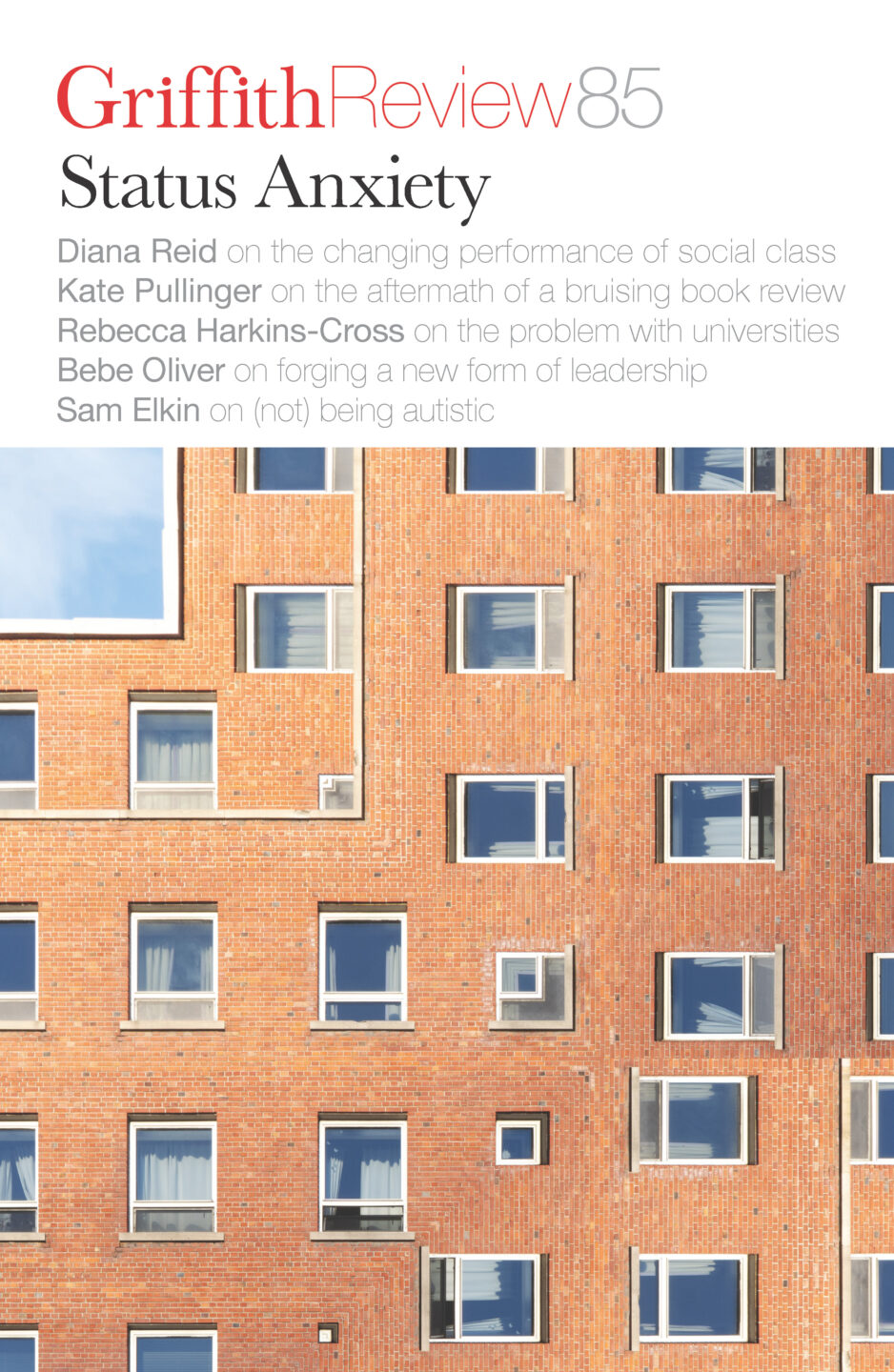Featured in

- Published 20240806
- ISBN: 978-1-922212-98-6
- Extent: 216pp
- Paperback, ePUB, PDF

Already a subscriber? Sign in here
If you are an educator or student wishing to access content for study purposes please contact us at griffithreview@griffith.edu.au
Share article
About the author

Andrew Galan
Andrew Galan is the author of two collections of poetry, That Place of Infested Roads and For All the Veronicas, and his work has...
More from this edition

Dying of exposure
Non-fictionPublishing is a weird industry, a retail supply service where every day hundreds – thousands – of brand-new, untested products are launched, each one a little bit different to the last. The long-haul career trajectory of most writers is increasingly difficult to maintain with incomes nosediving, as evidenced by multiple surveys. The road is cluttered with novelists brought down by ‘bad track’, their new books rejected because of the poor sales of previous titles. But as readers we still need help to discover good books, to figure out what to read next. As book pages, magazines and newspapers shrink or disappear altogether, it’s no longer clear what impact book reviewers can have on a career. The endorsement of someone whose work – critical or otherwise – you admire remains important to many writers.

Habitat
PoetryIt was early. I recognised my fate in the bathroom mirror. Behind which he slept deep into the morning...

Lifedorm
FictionThe fourth, fifth, sixth and seventh decades filled me with bitterness. I felt like the big oak tree in the centre of our play garden, stuck in the same place forever. Except even the oak tree’s life was more interesting because when it was small Parent 3 had told us to be careful not to step on it, and now it was this huge thing with ugly tree wrinkles and scars in the trunk from the branches we cut off to build a raft one summer, but I’d hardly grown at all.